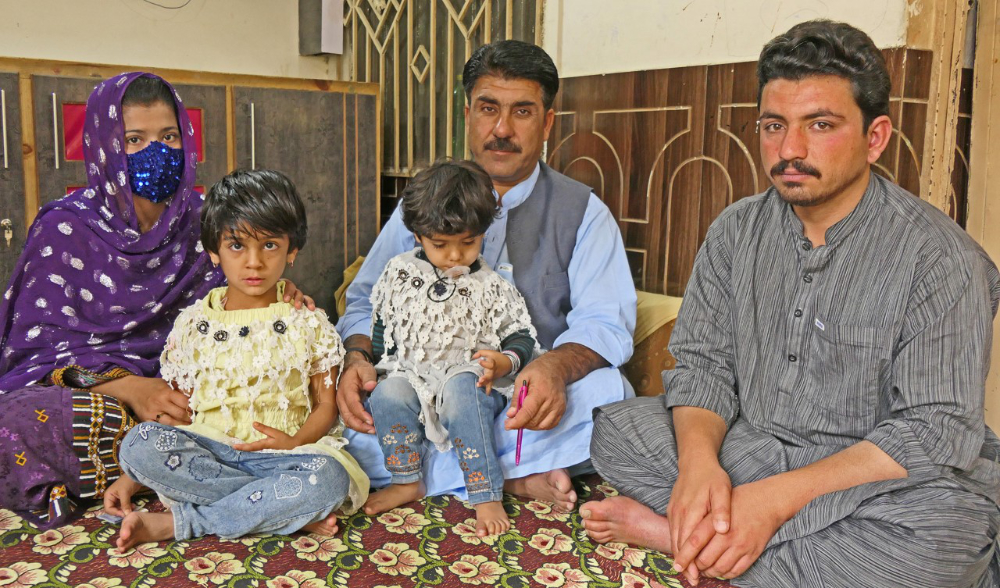QUETTA: When Pakistan witnessed a surge in coronavirus infections in the weeks after reporting its first case in February 2020, many families struggled to bury their dead in the face of new restrictions.
Islamic tradition requires relatives not only to hold the funeral swiftly after death, but also to wash the bodies of the deceased, which authorities in Muslim-majority countries like Pakistan feared would spread the virus.
Because the coronavirus is highly infectious and it was believed in the first wave — with little information or scientific research about the disease available — that the virus remained active in the corpses of victims, even relatives were afraid of touching bodies.
This is where community members like Babul Khan Jattak stepped in, teaming up with relief teams and local administrations as the disease sundered funeral rites.
Since the first infection wave swept Pakistan, the 41-year-old has been leading the Coronavirus Rescue Operation in Quetta, the capital of Balochistan, an impoverished southwestern province deficient in medical facilities.
“I cannot forget the horrific beginning of the coronavirus pandemic in Pakistan,” he told Arab News. “Dozens of people were dying and even their blood relatives were afraid of touching their bodies.”
Jattak, who for two decades worked for Edhi Foundation, a Pakistani charity that operates the world’s largest volunteer ambulance services, formed a dedicated team of 45 that ferried coronavirus patients from distant areas of the province to clinics and buried those who did not survive.
“I helped the bereaved families bury their loved ones who died due to the coronavirus without charging them anything,” he said.
Although official figures show that 377 out of 35,500 people who had contracted COVID-19 in Balochistan had died, Jattak said he had personally interred more than 600 people.
“Many people in Quetta and other districts of Balochistan were afraid of getting themselves tested for the virus due to false information about the process,” Dr. Waseem Baig, media coordinator for the provincial health department, told Arab News. “Many deaths were not registered in our data and people buried their loved ones who exhibited clear COVID-19 symptoms without informing the administration.”
Jattak and his team navigated this environment, undeterred by the danger. And the paramedic refused to back down despite testing positive for the coronavirus twice and developing medical complications.
“My job will continue,” he said, “until this virus is fully eliminated from the country.”
His family has many times asked him to quit, but to no avail.
“God has given him a brave soul and he cannot stop serving the people at such a critical juncture,” Jattak’s daughter, who only identified herself by her first name, Mahnoor, said.
Dr. Noor Muhammad Qazi, the director general of the provincial health department, called the Coronavirus Rescue Operation leader an “unsung hero.”
And that is also how Jattak’s team sees him.
For Abdul Rehman, a 27-year-old member of the task force, it was his senior’s example that made him stay on duty.
“When I tested positive for COVID-19, my family put immense pressure on me to quit the job,” he said. “I refused to give up the sacred duty since I had seen Babul Khan Jattak in the field and how he helped people with dedication.”




